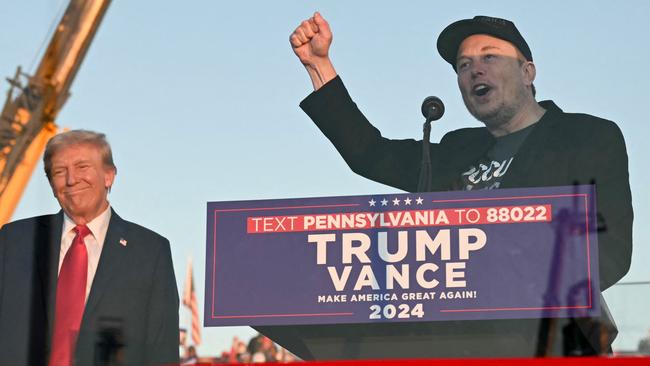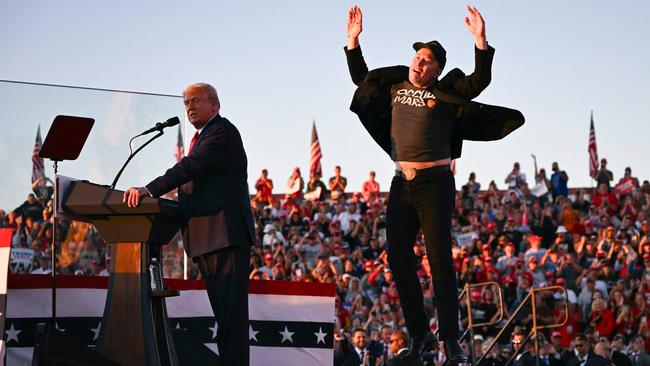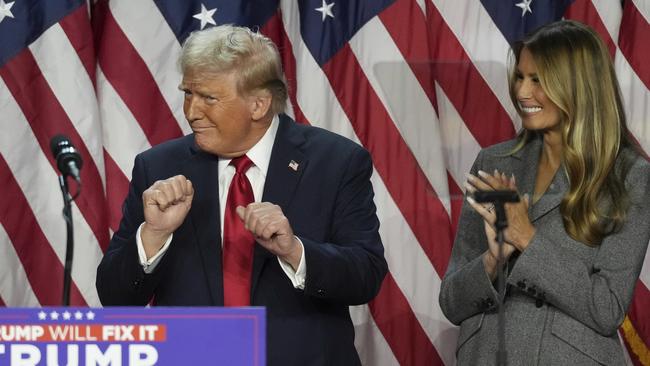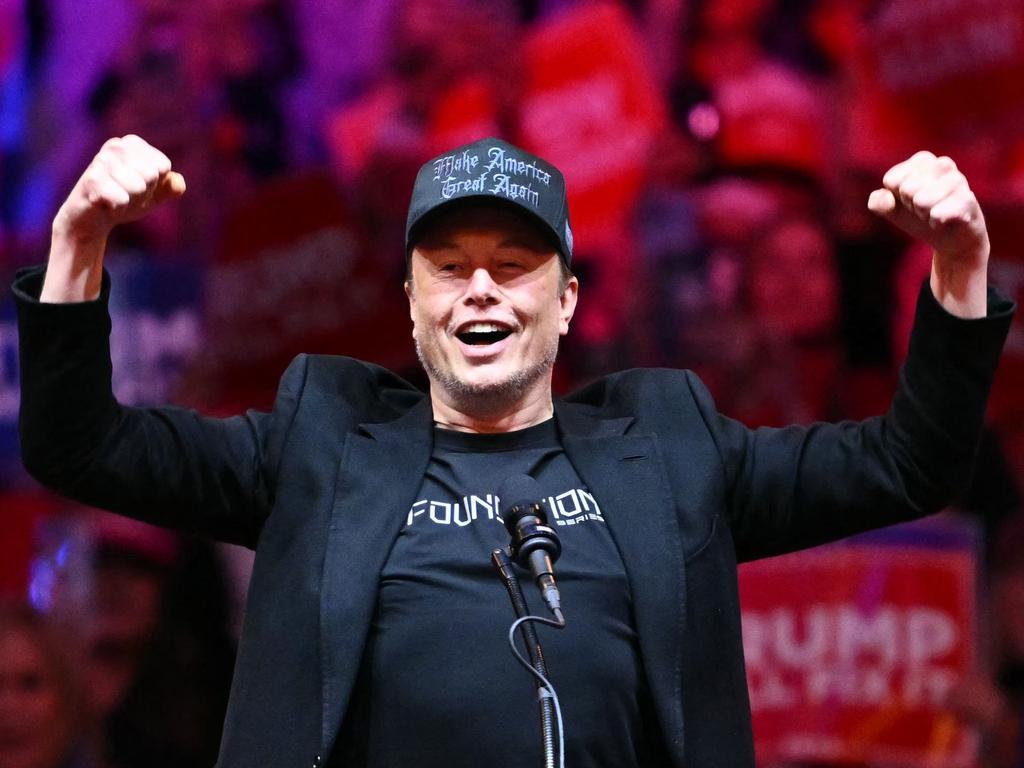Three key groups ‘to battle for White House influence’
An expert predicts Robert F. Kennedy Jr and Elon Musk will be given access to the Oval Office by Donald Trump, as key groups seek influence in his administration.

Three key groups are set to battle for influence within a second Trump administration if the former president clinches victory in the US election: his big Wall Street backers, the new generation of national security hawks, and an assortment of Make America Great Again populists.
US Studies Centre chief executive Michael Green also said there was a fourth category of people such as “Robert Kennedy and Elon Musk who Trump will give access to the Oval Office but they don’t have a clear portfolio and, frankly, no idea how government works”.
“They will collide around for a while and make a lot of noise,” Dr Green said.
Mr Musk, a tech titan and major backer of the former president, tweeted on his platform X on Tuesday night declaring that “the people of America gave @realDonaldTrump a crystal clear mandate for change.”
“The future is gonna be fantastic,” he wrote.

Robert F. Kennedy Jr, the former independent presidential candidate who dropped out of the race and backed Mr Trump, also posted on Twitter congratulating the former president on his “historic victory”.
“Let’s bring the country together and Make America Healthy Again,” he said.
Dr Green told The Australian that hedge fund founder John Paulson – who has pledged to work with Mr Musk to slash federal spending – was seen as one of the leading Wall Street allies of Mr Trump, with suggestions he could be a contender for Treasury secretary.
The national security hawks likely to gain Mr Trump’s consideration also included former US secretary of state Mike Pompeo, former national security adviser Robert O’Brien, and Tennessee senator Bill Hagerty.
Within the populist group there were a range of MAGA loyalists such as Kash Patel, a former public defender and national security council official, as well as former policy adviser and Trump speech writer Stephen Miller.
Consideration may also be given to those involved in pro-Trump think tanks, with a key architect of the hard-right Project 2025 policy blueprint, Russell Vought, thought to be a candidate for Mr Trump’s chief-of-staff.
“Donald Trump has said a lot of things, but very little of it is based on a carefully laid policy consensus,” Dr Green said. “Because he is first and foremost an entertainer and not a policy boffin, there are three broad groups that I think will come into the administration.”
Dr Green, who worked in the George W. Bush White House and on the campaigns of John McCain and Mitt Romney, said the three groups would probably “clash for the duration of the administration” and be “openly vying for power”.

But he said the national security types would “absolutely win on the alliance with AUKUS”, an assessment shared by former Australian ambassador to Washington, Dennis Richardson.
Mr Richardson said “I don’t think AUKUS is at risk”, and that the key issues at stake for Australia in a second Trump administration were “Ukraine and China”.
“I don’t think you can take what he has said in the past on Ukraine literally,” Mr Richardson said. “However, were he to sell out Ukraine, that would have enormous consequences globally.
“In respect of China, you need to bear in mind that there is a protectionist sentiment across the US body politic and [President Joe] Biden kept in place most of the measures imposed by Trump on China.
“Trump will certainly continue with the decoupling between the US and Chinese economies, particularly in military-related technology and in the IT space. Over and above that, it depends how far he goes in imposing tariffs. Were he to impose tariffs of a kind that led to a significant trade war between the US and China, that would have consequences for us.”
Dr Green said there were varying interpretations about what approach the former president might take to a second term.
He questioned whether Mr Trump would be more concerned with carving out a legacy and therefore more disciplined, or if the victory would inflate his ego and lead to greater recklessness where “he thinks he’s bullet proof and he’ll say what he wants”.
Mr Richardson said that, in terms of the Middle East, Mr Trump’s election “will be welcomed by Israel and a number of Arab countries”.
“It will not be welcomed by Iran,” he said. “I suspect India will be quite comfortable.”
However, he suggested there would be a bit of nervousness in Japan and South Korea “depending on what further demands he makes on allies”.







To join the conversation, please log in. Don't have an account? Register
Join the conversation, you are commenting as Logout